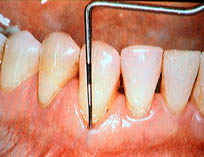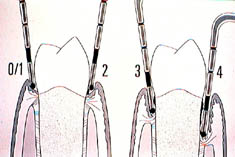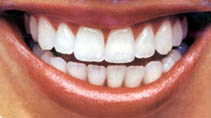|
|
|
![]()
Dental Outlook # 3
© Tomás Seif R. Odontólogo Universidad Central de
Venezuela Master of Science The University of Michigan,
USA e-mail: tseif@cantv.net,
Office numbers: (58-2) 992.02.42, 992.54.31,
992.78.09
Welcome to this section of the Dental Column.
Hopefully all our readers will enjoy it and have the opportunity to learn about the exciting advances and technologies that modern dentistry has to offer.
The importance of a dental exam
Like some patients, you may wonder why an oral examination is necessary when you visit the dentist. You may also wonder what the dentist is looking for, what an exam entails or why a dental cleaning won't suffice. This article will help you become informed about the importance of oral exams to your oral and general health.
![]()
What is the dentist looking for during an exam?
Your dentist performs a dental exam to gather information about your oral health. Checking for dental decay is only a small part of a complete oral exam. Your dentist checks for gum disease and also examines the health of your entire mouth and the surrounding soft tissues, which includes checking for such things as precancerous or cancerous lesions; oral sores or irritations to gum tissue; fit of fillings, crowns, bridges, dentures and a proper bite. Medical and dental histories are usually obtained, along with diagnostic information from x-rays, laboratory and other tests.
Oral health is integrally connected with your general health. Checkups are important because some diseases or medical conditions have signs that can appear in the mouth. Diabetes, nutritional and vitamin deficiencies as well as hormonal irregularities are some examples.
Although I will discuss the details about radiographs in a future column, the evaluation of x-rays is also important and very necessary for a complete diagnosis of your oral condition. Radiographs become necessary in an initial examination as well as in future recall appointments.
The extent of the exam you'll receive depends upon a number of factors. If you're a new patient, for example, you will receive a much more thorough exam that if you've recently been to the dentist and are returning to have a specific dental condition checked.
Why is cancer screening necessary?
Cancer screenings help detect pre-cancerous changes in the oral tissues at a stage when they can be more successfully treated. If cancer is not found early, tumors may grow deep into local tissues and spread to lymph glands in the neck. When tumors invade lymph glands, there is less of a chance for an effective treatment.
Your dentist will look for and feel your neck and oral tissues for lumps, masses, growths, red or white patches or recurring sore areas.
Have you heard about a screening for gum disease?
Periodontal screening is a simple procedure that helps your dentist "keep score" of your gum health. It is designed for early detection of gum disease. Because periodontal disease is a major cause of tooth loss in adolescents and adults, early detection is important. The mouth is screened by using a special periodontal probe. The tip of the probe is gently inserted between the tooth and gum to measure the depth of the tissue at this spot.
 |
|
 |
This measurement helps the dentist to assess the health of the gums. A series of measurements in millimeters are recorded and then scored in the upper and lower teeth. The dentist can then determine whether or not periodontal treatment is necessary. This screening should be done at least once a year.
![]()
Assesment of esthetics is also available
The esthetic assessment of the features of your smile is also an integral part of a dental examination. With today's dental technologies and new materials your smile can be enhanced significantly after a thorough evaluation. Many dentists are very interested in cosmetic procedures and seek training in this field. Everyone wants to have a beautiful smile. A well trained dentist can evaluate certain features of your smile and recommend proper treatment. I will tell you about the newest available smile enhancement procedures in future articles.
I am looking forward to next week to update you with more interesting information about modern dentistry.
Es nuestro interés que la información incluida en esta página sea de su ayuda. Si tiene alguna pregunta puede envíarnos un correo electrónico, o si desea que incluyamos algún tópico en particular en esta sección puede contáctarnos a través de nuestro libro de visitas.
